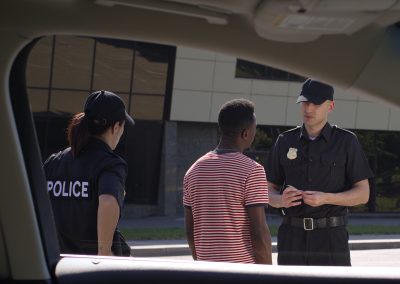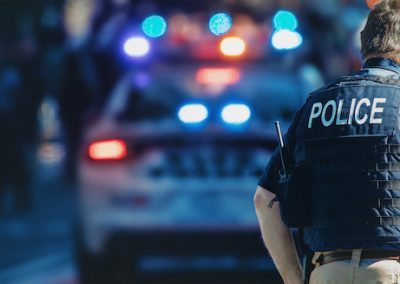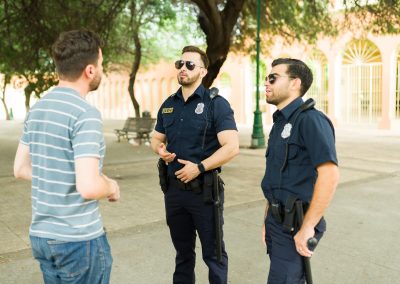How well an organization performs greatly depends on the collective effort. With us cops individualism is not as important as plural talents. If I’m going to crush the ball out of the park, then I’d prefer to have a teammate or two already on base. Very often, the success of an agency hinges on the collective and unified effort. Sometimes we forget, but so much of what we do—and how we do it—is the same as those who work around us.
A police department is a paramilitary organization. It has a rank structure and a set of rules—a code of conduct—that is demanded and monitored. We’re a bunch of little army divisions scattered around the whole country. We wear the same uniform, patrol the same ground, work a set shift, do similar things, and report to the same kind of superiors.
By its very nature a police department does not ooze with individual preferences. All police officers have the same mission, whose sense of service to their community dwarfs personal preferences. In other words, a police officer understands that his or her badge and patch are what most endears himself to his fellow officers. Without this feeling, it might be more difficult to depend on each other with our lives.
But …
With all that said, each police officer, even though attached to a greater group and cause, still carries his or her personality and behaviors. In a fraternity such as a police department, personalities are not hidden, but are constantly on display. These personalities are also indicators of an officer’s habits, tendencies, decision making, and even leadership potential.
Which officers on a shift are the eager ones? Which ones are more passive? Which are pragmatic? Which ones are more patient or more assertive? Which ones at times seem disconnected and aloof? Most importantly, how do these characteristics and personalities meld with others in order to achieve the mission of the day?
There’s no boilerplate answer to these questions.
Supervisors, however, can allow their officers to practice policing as they determine it to be most effective, while at the same time staying within the parameters of the crew’s and department’s expectations and guidelines. Getting along is important. But paving the way for disparate personalities should actually promote greater harmony. This might sound kooky to some of you. Allow me to level back a bit.
Aren’t some traits almost required? Yes! Policing is unpredictable, tense, and often stressful. Most vital to the operational and organizational success of a police department are those officers who exhibit a strong work-ethic (manifested through proactive, consistent and accurate work); attention to detail with respect to their uniform, squad car and equipment; a positive attitude; unflappable dedication; steadiness under pressure; politeness toward coworkers, supervisors, and the public; preparation; and knowledge of the law and departmental policy.
All of these qualities just outlined can all be quantitatively observed, and can probably be correlated to personalities and behaviors. An officer who does not prepare will probably have a substandard uniform appearance, and is therefore irresponsible. An officer who shows a weak work ethic probably strains to cite the law when required, and can be considered indecisive. An officer who has his boots polished probably has a clean gun in his holster.
The Challenge
Because a cop’s responsibilities are so great and life-affecting, certain behaviors must be present. Not all officers are necessarily pre-wired to embody preparation and commitment, for instance. This then becomes a challenge for peers and supervisors alike. Through encouragement, guidance and example, those who fall short of the mark may rise to that level which is required of them. Granted, this is no easy task. But neither is being a police officer, and it is that very idea of a “challenge” that motivates and drives us.
A police department is built out of individuals, and with that, differences. Personalities within our organizations are very real and always changing. This can be tolerated—even celebrated—so long as the mission of the moment, the hour, the shift, is achieved. At times, some will need guidance. This includes each of us. Individualism among cops is expected. What it can’t do is ensnarl unit cohesion and activity. After all, in a place like a police department, it’s not just me, not just you. It’s the whole crew.










0 Comments